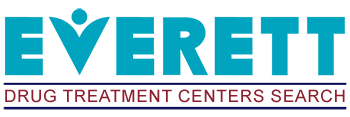Alcohol and Drug Withdrawal in Everett, MA
Alcohol and drug withdrawal takes place when a dependent person stops or dramatically reduces their drug intake. Depending on the substance and extent of addiction, both physical-somatic and emotional-motivational withdrawal symptoms may be present during the withdrawal syndrome. Alcohol and drug withdrawal often requires professional drug treatment and medication, including medical detox, rehabilitation, and aftercare support. Let Everett Drug Treatment Centers be your guide.
What is Alcohol and Drug Withdrawal?
Alcohol and drug withdrawal is experienced when a person who is dependent on certain psychoactive substances stops using those substances. Because addiction is a learned response, the body becomes accustomed to drug exposure over time as the brain changes the way it functions. Withdrawal symptoms are experienced in many ways depending on the substance and extent of dependence, including nausea, headaches, vomiting, anxiety, depression, seizures, hallucinations, delirium tremens and much more. Medical intervention is often advised to help reduce the severity of these symptoms before they create additional medical complications.
Medical Detox Stages
The United States Department of Health and Human Services recognize three separate stages in the medical detox process. The first stage involves physical and psychological testing and is known as evaluation. This is an important way to identify currently circulating substances, secondary addictions, mental health disorders, and other problems likely to interfere with the drug treatment process. The second stage of detox involves procedures to stabilize the patient, with medication often used in this context. While natural and “cold turkey” detox programs are able to stabilize patients without the use of medications, they can be dangerous and are not advised in most situations. The final stage of detox involves a consultation or education process, with therapists helping patients into further treatment before enrolling them in a rehab program.
Alcohol Detox
Alcohol is a central nervous system (CNS) depressant that is known to produce a physical withdrawal syndrome. Medical detox is often used to help alcoholics prior to rehab programs, with benzodiazepines and other medications used to help reduce the severity of withdrawal symptoms. Common withdrawal symptoms experienced by alcoholics include nausea, vomiting, hand tremors, headaches, seizures, and delirium tremens. Symptoms range from mild physical disturbances through to serious medical conditions, with medical support advised at every stage of the detoxification process. Residential or outpatient rehab should always follow detox, including behavioral therapy and other programs to address the precedents of addictive behavior.
Opiate Detox
Opiates include the illegal drug heroin and the prescription medications Oxycontin and Vicodin among others. Opiates are CNS depressants, with these drugs linked to both physical-somatic and psychological withdrawal symptoms. Common symptoms include nausea, vomiting, unwanted body movements, excessive sweating, cramps and much more. Medications are often used to help alleviate these symptoms, including the opiate drugs methadone and buprenorphine. Rehabilitation is always advised after medical detox in order to address the psychological undercurrents of drug addiction, followed by relapse prevention and aftercare support programs.
Everett Drug Treatment Centers is your primary recovery resource. Please give our recovery advocates a call today at (617) 553-9495 for more information.
